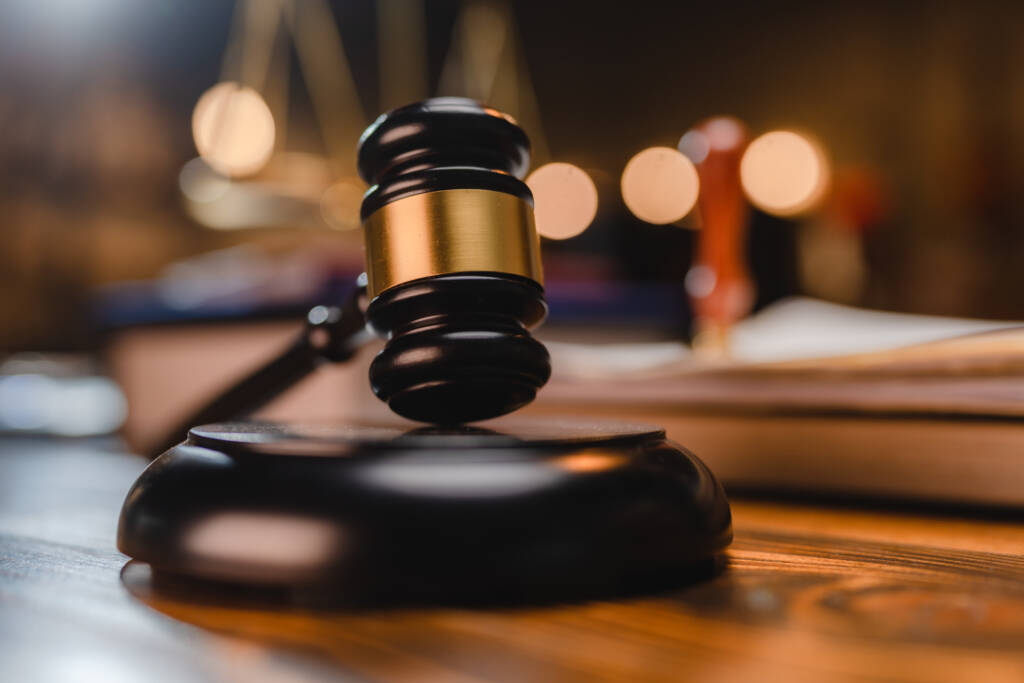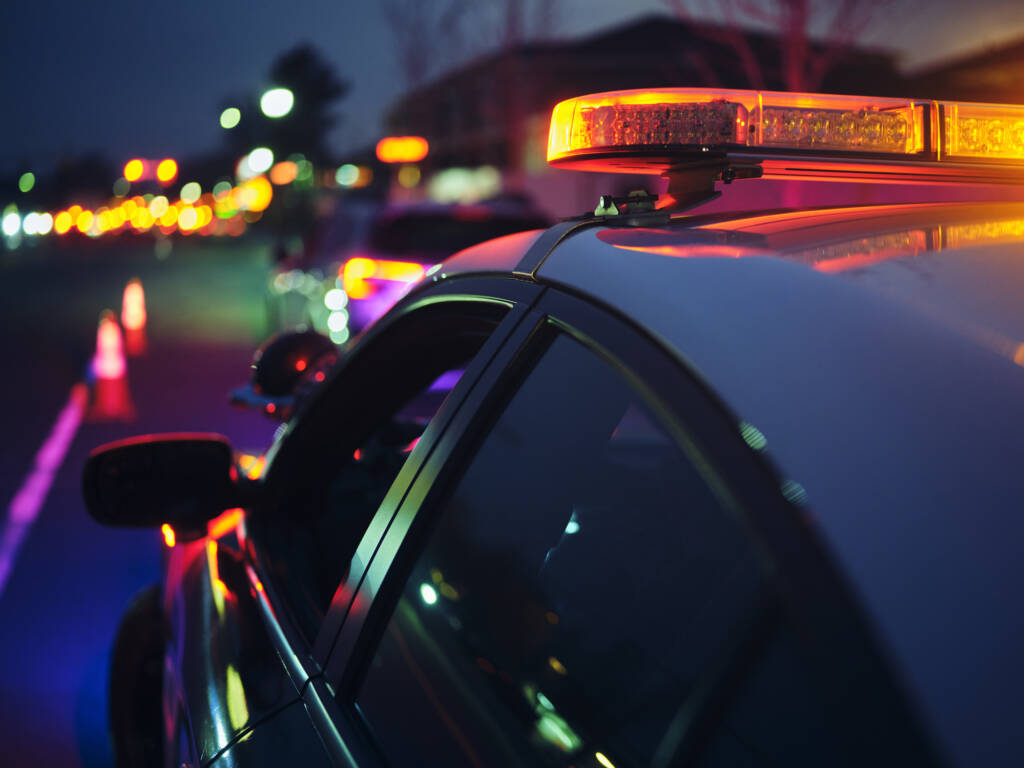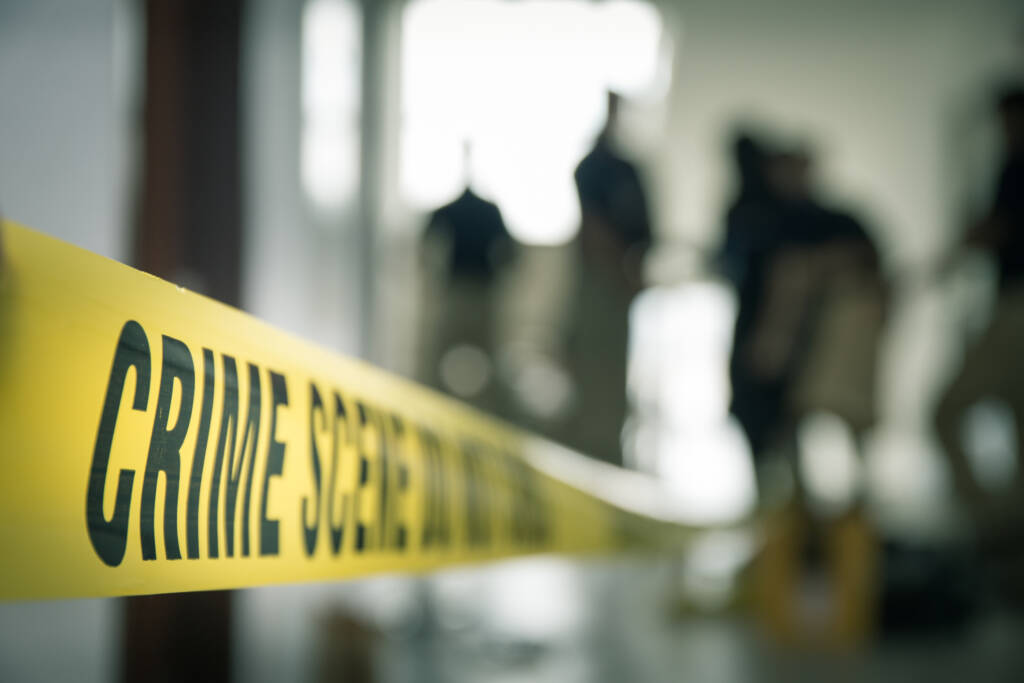
Adult Education Careers in Criminal Justice 1a

Have you ever wondered what steps take place as people move through the court system? The criminal justice system is a very complex field that requires dedicated people willing to pursue equal justice for all. Explore different career choices and how the juvenile justice system, the correctional system, and the trial process all work together to maintain social order.
During this course, you will learn career-related skills and earn a badge for this accomplishment. A badge is a digital certification of your career-related learning that you can share on social media and higher education platforms, or with colleges, potential employers, peers, and colleagues. Select this link to learn more about badges.
Cost: Students purchase 28 days of access for $105. Students may work as quickly through the content as they wish. Every 28 days, students may purchase an additional 28 days of access for an additional $105.
Major Topics and Concepts
Unit 1: Overview of Criminal Justice
- Identify the history and goals of the criminal justice system.
- Discuss how political, moral, and economic concerns lead to the development of laws.
- Describe the history of corrections.
- Describe the parts and functions of the criminal justice system.
Unit 2: History of the Criminal Justice System
- Understand the factors that influenced crime and punishment in nomadic tribes and early agrarian civilizations
- Compare ancient Roman law and punishment to our current criminal justice system
- Discuss legal documents from early American colonial history
- Detail early American prison reform efforts
- Conduct debate on the causes of crime in American society
Unit 3: US Laws: Freedom versus Responsibility
- Identify characteristics of criminal and civil law
- Clarify elements and classifications of crimes
- Distinguish between federal and state laws and local laws and ordinances
- Trace how laws are made
- Discuss rights granted various Constitutional amendments
- Describe criminal law procedures in Florida
Unit 4: Introduction to Careers in Criminal Justice
- Identify and describe career opportunities in the criminal justice system
- Examine the job duties and skills needed to excel in specific roles
- Consider the prerequisites for job entry into the criminal justice system
- Explore the salary expectations for entry level positions in the criminal justice system
Unit 5: Inside the Courtroom
- Describe the people in a courtroom
- Evaluate the pretrial process
- Discuss the parts of a trial
- Consider various post-trial processes and sentences
- Differentiate between the roles and responsibilities of the people involved in the trial processes
- Determine appropriate courtroom demeanor and participate in a mock trial
Unit 6: The Juvenile Justice System
- Review the history of the juvenile justice system in the United Systems
- Identify the programs and agencies within the juvenile justice system and describe their roles and responsibilities
- Determine law enforcement procedures related to juvenile delinquency
- Analyze current trends in juvenile justice
- Discuss Florida’s juvenile court system, including procedures and alternative programs
Unit 7: Correctional Facilities
- Differentiate between local, state, and federal correctional systems
- Compare and contrast different types of prison and community-based programs
- Identify major correctional operations procedures and programs
- Debate issues concerning the rights of inmates
- Understand correctional reform and the responsibilities of correctional officers
Unit 8: People Skills in Criminal Justice
- Recognize personal traits that help one succeed in the criminal justice field
- Apply strategies for working well with others
- Consider personal stressors and evaluate methods for resolution
- Plan solutions for situations that require crisis management and conflict resolution
- Identify the interpersonal skills, work habits, and ethics necessary for ongoing employment in an environment of human diversity
Competencies
Organization of the Criminal Justice System
Students will demonstrate an understanding of the organization of the criminal justice system by describing the parts of the criminal justice system, explaining the criminal justice process and explaining the purpose of the criminal justice system.
History of Criminal Justice System
Students will demonstrate an understanding of the history of the criminal justice system by describing factors that influenced crime in early civilizations, describing early American prison reform efforts, and describing causes of crime in American society.
Classification of Laws
Students will demonstrate an understanding of the classification of laws about freedom and responsibility by explaining the law-making process, describing constitutional amendments, and comparing laws.
Careers in Criminal Justice
Students will demonstrate an understanding of careers in criminal justice by explaining careers in criminal justice, explaining pathways for careers in criminal justice, and describing skills required for careers in criminal justice .
Courtroom Procedures
Students will demonstrate an understanding of courtroom procedures by describing the trial process, explaining courtroom procedures, and comparing roles and responsibilities of individuals in the trial process.
The Juvenile Justice System
Students will demonstrate an understanding of the juvenile justice system by describing the history of the juvenile justice system, explaining the characteristics of the juvenile justice system, and comparing the juvenile and the adult justice systems.
Correctional Facilities
Students will demonstrate an understanding of correctional facilities by describing types of correctional facilities, explaining the rights of inmates, and explaining rehabilitation programs.
Employability Skills in Criminal Justice System
Students will demonstrate an understanding of employability skills in criminal justice careers by describing personal traits needed for employment in a criminal justice career and describing interpersonal skills needed for employment in a criminal justice career.

